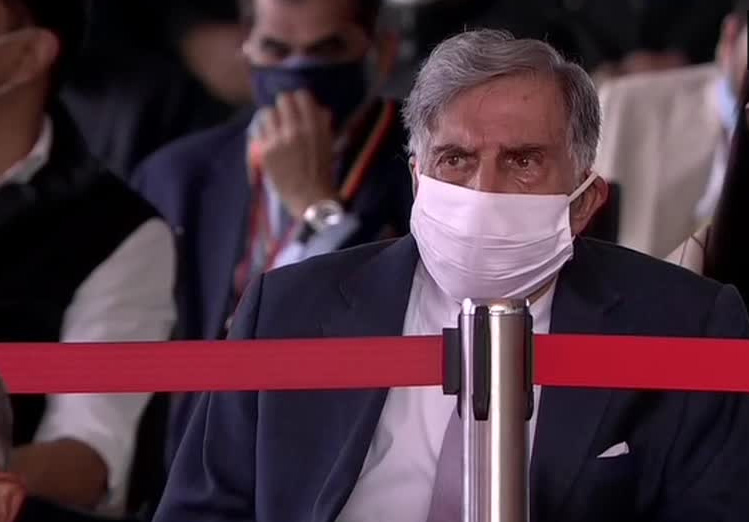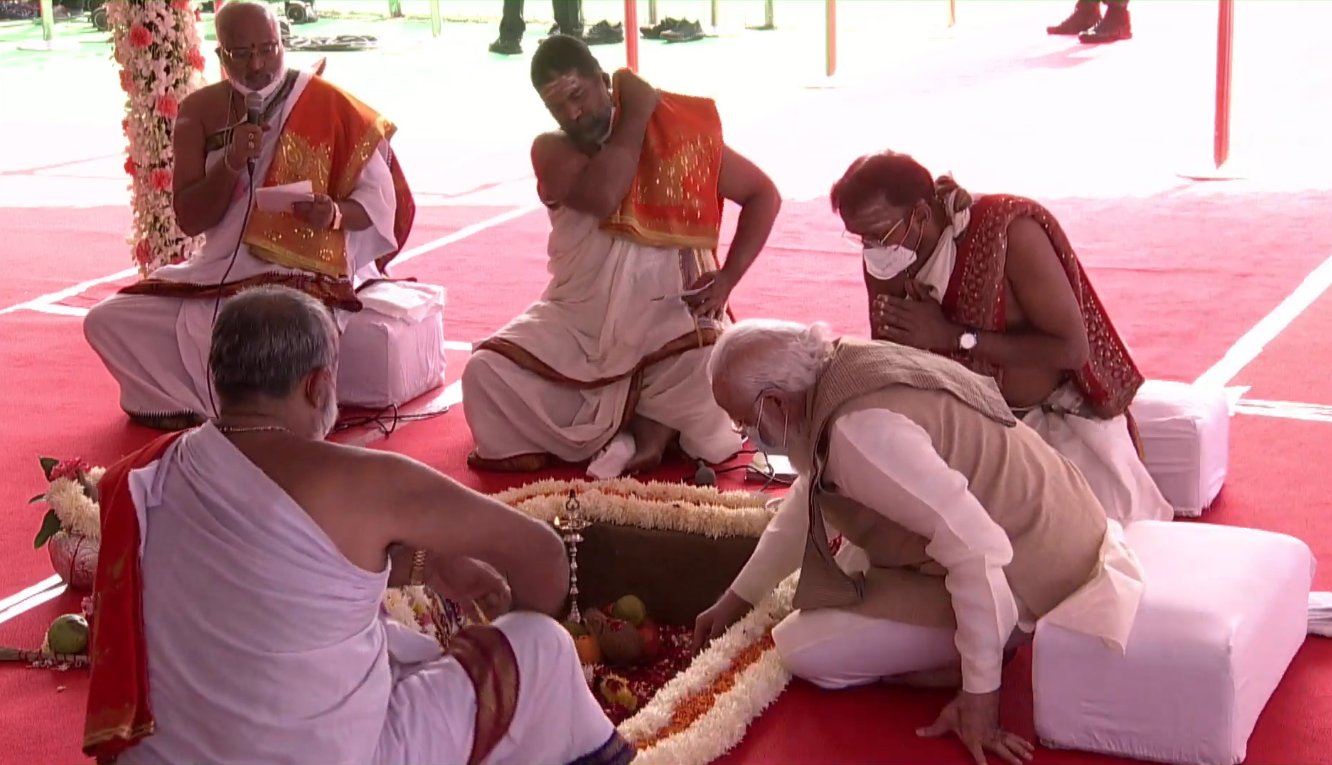New Delhi: Prime Minister Narendra Modi today performed a ground-breaking ceremony in the heart of Delhi to mark the symbolic launch of the new parliament building as part of an ambitious Central Vista plan.
To Sanskrit chants by six priests, the PM performed the rituals around a holy pyre organized in a flower-decked marquee.
 Around 200 dignitaries, including Union Ministers, Ministers of State, MPs, foreign envoys and religious leaders attended the function that was webcast live. Ratan Tata, whose Tata Projects is a part of the building plan, was also present.
Around 200 dignitaries, including Union Ministers, Ministers of State, MPs, foreign envoys and religious leaders attended the function that was webcast live. Ratan Tata, whose Tata Projects is a part of the building plan, was also present.
The construction cannot begin for now with the Supreme Court hearing petitions challenging the project.
Last week, the Supreme Court had berated the government, accusing it of “pushing forward aggressively” with the project even before its decision on petitions challenging it on environmental grounds. “You can lay the foundation stone, you can carry on paperwork but no construction or demolition, no cutting down any trees,” the court had said.
The new parliament building is the centrepiece of the ₹ 20,000-crore Central Vista project to refurbish government buildings and make over a 3-km stretch between the presidential palace Rashtrapati Bhavan to the iconic war memorial India Gate.
The proposed four-storied parliament building will cost nearly ₹ 1,000 crore and is expected to be completed in time for the country’s 75th Independence Day in August 2022. The building will seat 888 members in the Lok Sabha Chamber with an option to increase to 1,224 Members during Joint Sessions. The Rajya Sabha chamber will have a seating capacity for 384 members.
Each Member of Parliament will be provided with a 40 sq m office space in the redeveloped Shram Shakti Bhawan, which will be completed by 2024. The new building will also showcase the country’s glorious heritage, with contributions from artisans and sculptors from across the country.
The current parliament building, a circular monument built in the British rule, will become a museum. The spectacular building, with 144 sandstone columns, was designed by Sir Edward Lutyens, who also designed the seat of power in Delhi.
The government says with the depth, scope and complexity of legislative and parliamentary work increasing over the years, many members had expressed the need for modern, hi-tech facilities that could not be installed in the existing 93-year-old building.
Trending Now
E-Paper


